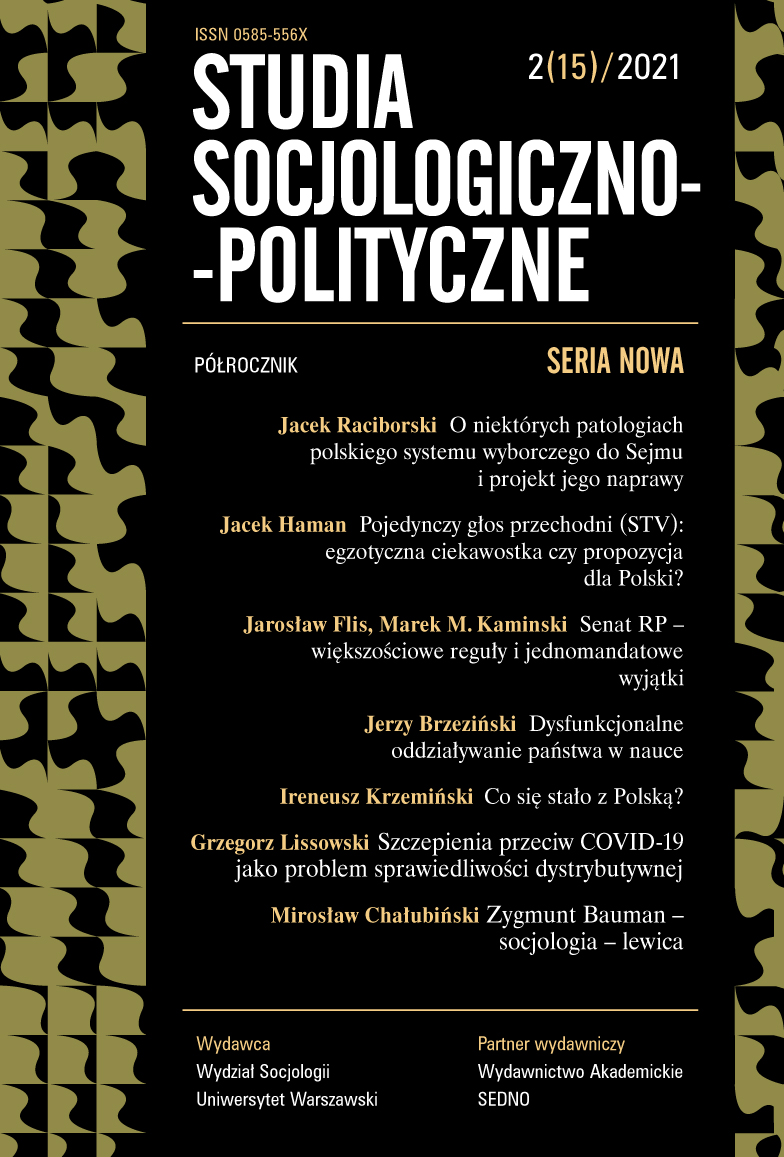Populist Nationalism in CEE: A Leader-Centered Analysis
Populist Nationalism in CEE: A Leader-Centered Analysis
Author(s): Jan Pakulski, John HigleySubject(s): Politics / Political Sciences, Social Sciences, Psychology, Political Theory, Political Sciences, Civil Society, Governance, Government/Political systems, Politics and law, Politics and society, Social psychology and group interaction, Sociology of Culture, Social Norms / Social Control, Sociology of Politics
Published by: Wydział Socjologii Uniwersytetu Warszawskiego
Keywords: populist leaders; autogenic capacities; elite trust; restrained partisanship; democratic stability
Summary/Abstract: Surges of populist nationalism in Europe and the United States over the last decade made it a central subject in comparative sociology. Most explanations center on changing societal conditions that undergird these surges and focus on populist takeovers in Western societies. The causal significance of populist-nationalist demagogy and manipulation of publics by leaders tends to be downplayed. Taking a leader-centered approach and focusing on the „established” populist leaders in CEE, this article emphasizes the „autogenic” aspect of populist-nationalist leaders – their independent proclivity, especially when holding government executive power, to shape national identity and deliberately enflame discontents and divisions that fueled their rise. Society-centered explanations of populist nationalism are not wrong but need to be supplemented by analyses of these self-entrenching leaders’ actions. Consistent with how Max Weber and early elite theorists treated populist nationalism around the time of World War I, this article defines it as a distinctive leadership style that threatens democratic stability.
Journal: Studia Socjologiczno-Polityczne. Seria Nowa
- Issue Year: 17/2022
- Issue No: 2
- Page Range: 9-24
- Page Count: 16
- Language: English

